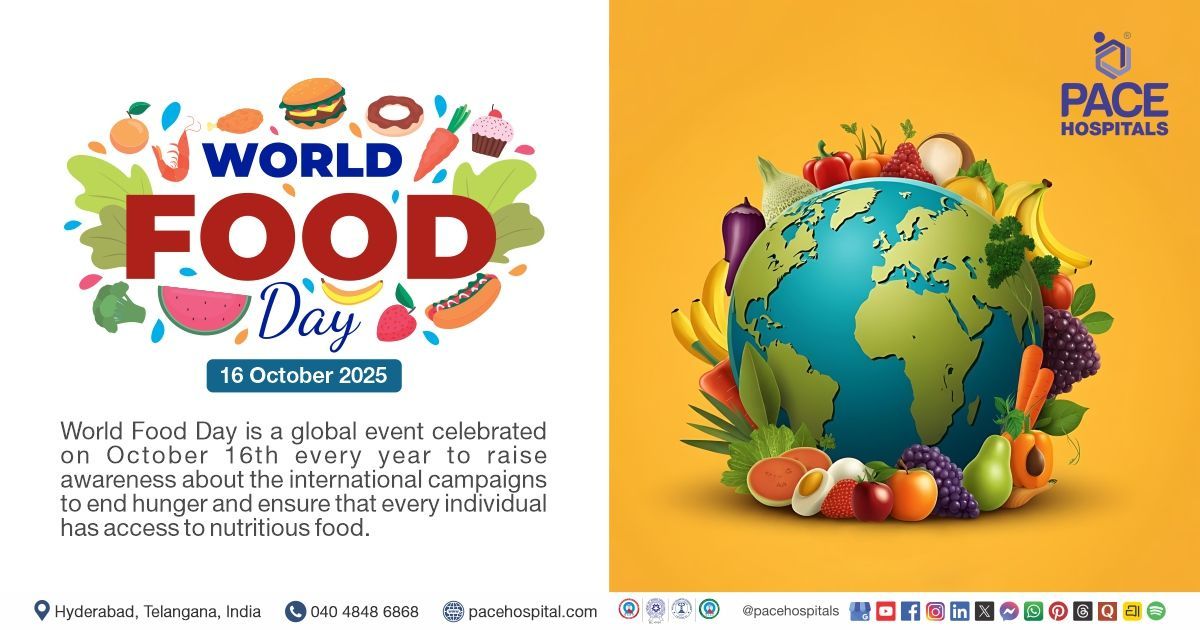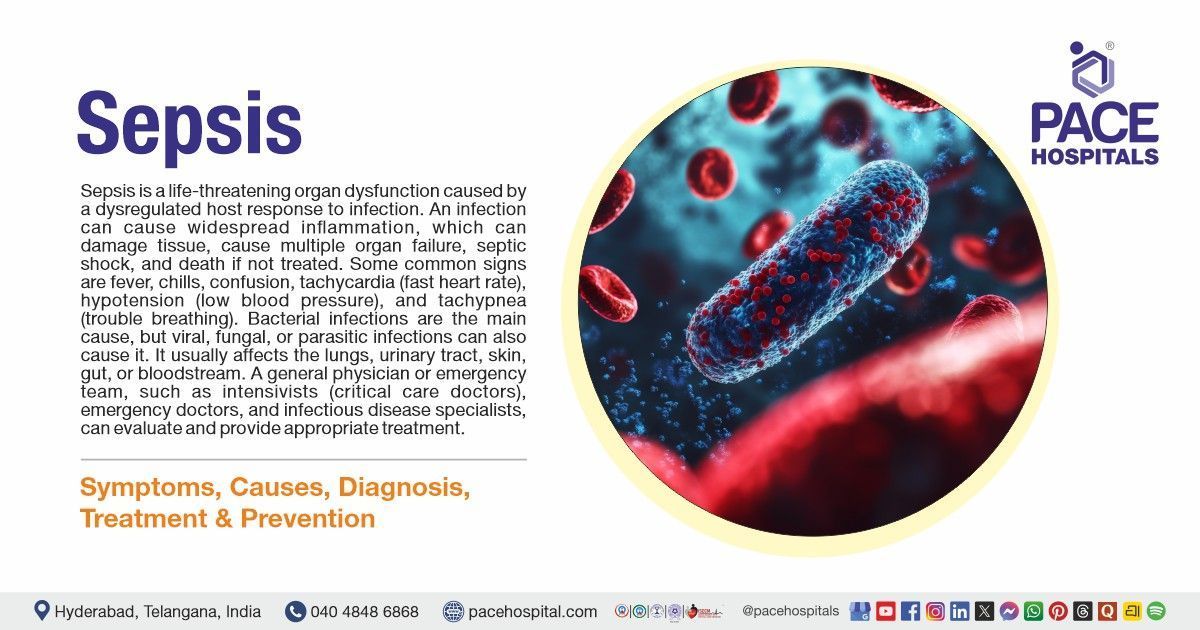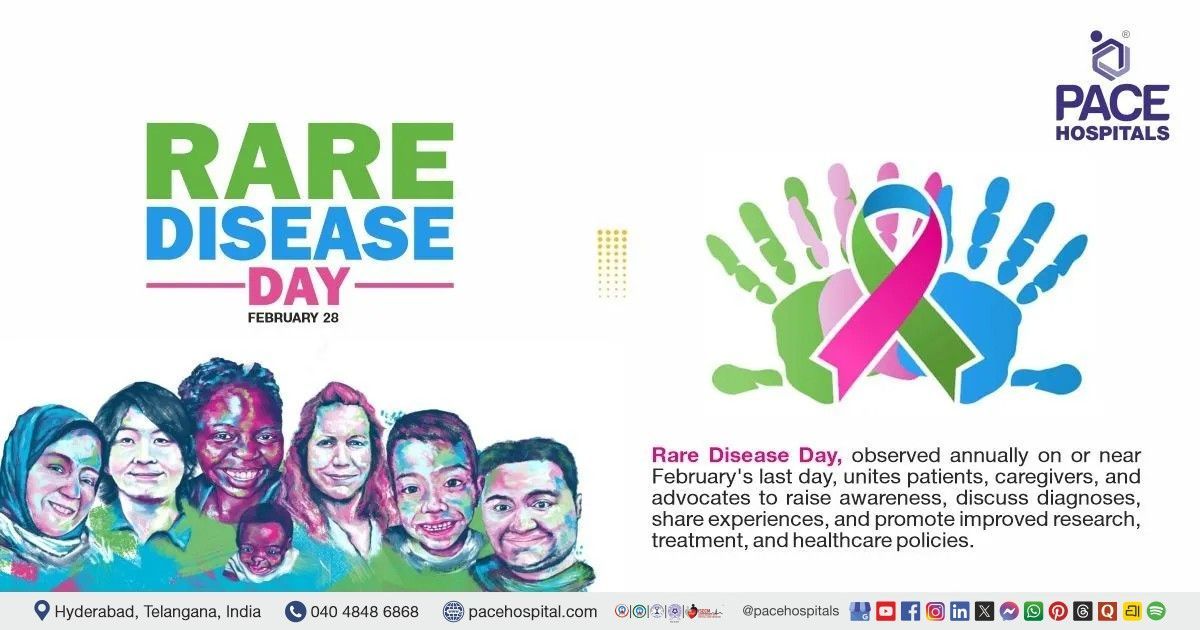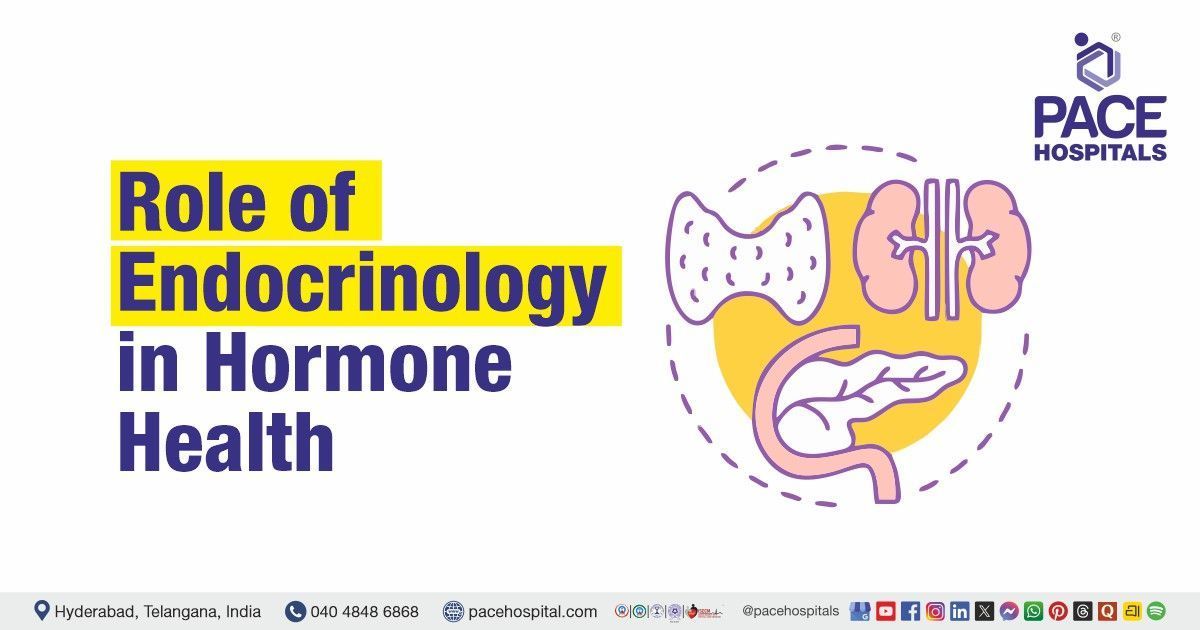World Food Day, 16 October 2025 - Theme, Importance & History
PACE Hospitals
World Food Day is a global event celebrated on October 16th every year to raise awareness about the international campaigns to end hunger and ensure that every individual has access to nutritious food. World Food Day’s objectives are to eradicate hunger, ensure food security, boost agricultural productivity, and support a sustainable food system.
On this day, the United Nations, governments, organizations, farmers, corporations, and the public come together to address food security concerns. These significant stakeholders take part in events, advocating campaigns, and outreach projects to promote sustainable agriculture, reduce food waste, and provide equal access to nutritious food. Their collective endeavors are aimed at creating a world without hunger while protecting human health, dignity, and well-being.
Importance of World Food Day
'Foods' is not just about sustenance but also about diversity, nourishment, affordability, accessibility, and safety. A wide array of nutritious foods should be readily available, from the fields and fishing nets to the marketplaces and our tables, for the benefit of all. This diversity in our food choices is not just a matter of taste but a crucial aspect of our health and well-being.
Over 280 crore people worldwide cannot afford a healthy diet. Unhealthy diets are the leading cause of all forms of malnutrition – undernutrition, micronutrient deficiencies and obesity, which now exist in most countries, cutting across socio-economic classes. Yet today, too many people suffer from hunger and are unable to afford healthy diets. More vulnerable people are frequently compelled to rely on staple or low-cost foods, which can be unhealthy. On the other hand, others cannot obtain fresh or varied foods, lack the information required to pick a balanced diet, or prefer convenience.
Hunger and malnutrition are further exacerbated by protracted or prolonged crises that are driven by a combination of conflict, extreme weather events and economic shocks. Agrifood systems are vulnerable to disasters and emergencies, particularly the impacts of climate change. Still, at the same time, they are generating pollution, degrading soil, water and air, and contributing to greenhouse gas emissions and biodiversity loss. Transforming agrifood systems has excellent potential to mitigate climate change and support peaceful, resilient, and inclusive livelihoods for all.
Healthy diets should be varied, provide the right energy, meet nutrient needs, and limit unhealthy foods. Agrifood systems can and must enable all people to consume healthy diets now and in the future for the health of people and the planet. However, more significant commitment, investment, and innovation are needed to realize this ambition. World Food Day is observed to raise awareness and encourage action to combat worldwide hunger and malnutrition.
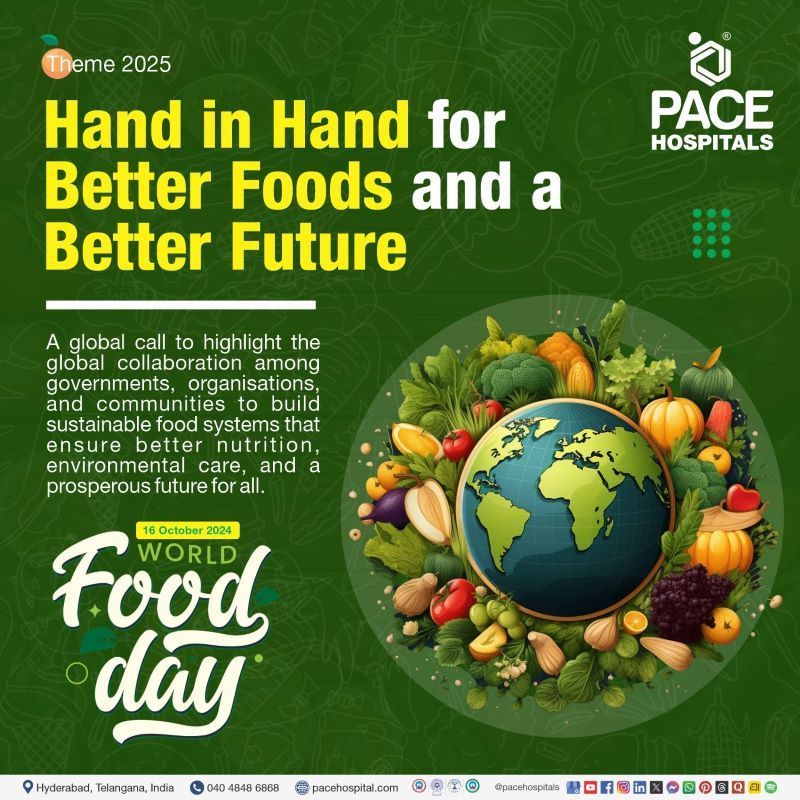
World Food Day 2025 Theme
This year, 2025, World Food Day's theme is "Hand in Hand for Better Foods and a Better Future". This theme emphasizes global collaboration among governments, organizations, and communities to build sustainable food systems that ensure better nutrition, environmental care, and a prosperous future for all.
Year by year, the themes for World Food Days are:
- World Food Day 2024 Theme: Right to Food for a Better Life and a Better Future
- World Food Day 2023 Theme: Water is life, water is food
- World Food Day 2022 Theme: Leave No One Behind
- World Food Day 2021 Theme: Safe food now for a healthy tomorrow
- World Food Day 2020 Theme: Grow, nourish, sustain. Together. Our actions are our future
- World Food Day 2019 Theme: Our Actions Are Our Future. Healthy Diets for A #ZeroHunger World
- World Food Day 2018 Theme: Our actions are our future – A Zero Hunger World is possible by 2030
History of World Food Day
The Food and Agriculture Organisation (FAO) was established in 1945, and World Food Day was declared in 1979 when the 20th FAO Conference declared October 16 as World Food Day. Over 150 countries joined the movement, observing this day to raise awareness about hunger, malnutrition, and food-promoting sustainable solutions for a zero-hunger world.
Tips for Healthy Food Intake
Here are the tips for a healthy food intake:
- Including various foods from all food groups, such as fruits, vegetables, lean proteins, whole grains, and healthy fats.
- Avoiding overeating by practising mindful portion sizes.
- Aim for at least five servings daily, rich in vitamins, minerals, and antioxidants.
- Choosing whole grains like brown rice, oats, and quinoa over refined grains for better fibre and nutrient intake.
- Including sources of unsaturated fats, such as olive oil, avocados, nuts, and seeds.
- Reducing intake of processed and ultra-processed foods high in sugar, salt, and unhealthy fats.
- Maintaining regular mealtimes helps to control metabolism and energy levels.
Share on
Request an appointment
Fill in the appointment form or call us instantly to book a confirmed appointment with our super specialist at 04048486868

